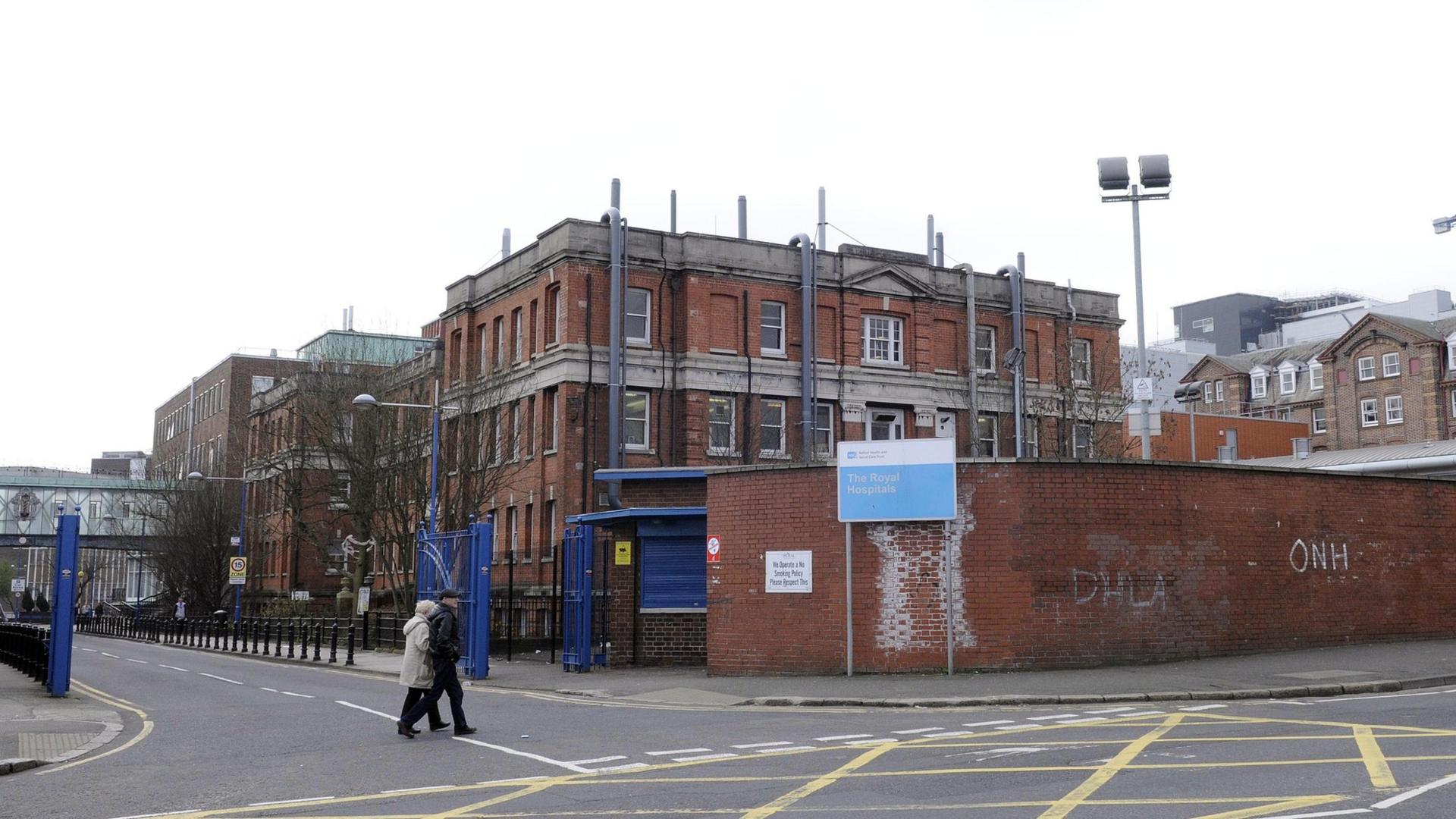NI health minister sees 'merit' in A&E fees for drunk patients
- Published
The BBC's Chris Buckler: "There are always political sensitivities when people challenge the principle of free healthcare for all"
Northern Ireland's health minister has said he can see merit in the idea of charging fees to patients who end up in A&E as a result of alcohol or drugs.
Edwin Poots has recently provided extra resources to try to tackle long waiting times in emergency departments.
However, staff say they are still under severe pressure on a regular basis.
Between April and June, targets to treat patients within 12 hours were missed more than 700 times in Northern Ireland, according to the latest data.
The majority of those breaches were at the Royal Victoria Hospital (RVH) in Belfast and Antrim Area Hospital.
'Abused'
Senior health service staff have in the past appealed for people to only go to A&E units if they are genuinely in need of emergency care.
And the health minister is concerned about the number of patients who require treatment because of their own irresponsible behaviour.
"The United Kingdom has a great principle of health care, free at the point of need to all who need it irrespective of their ability to pay for it," said Mr Poots.
"I think it is a wonderful principle but I think on occasions it is abused and we sometimes need to look at how we can make sure that abuse doesn't take place."
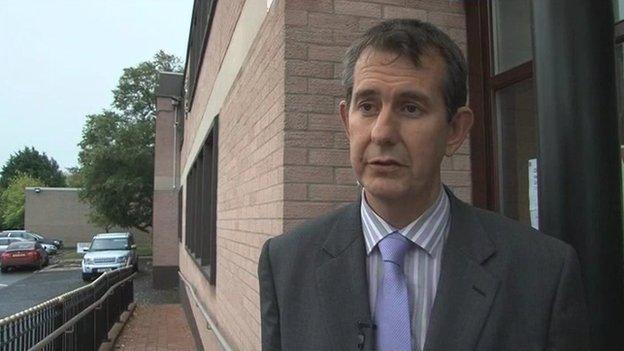
Edwin Poots said health authorities needed to examine ways of stopping "abuse" of free NHS treatment
The delays in some patients receiving emergency care has had severe consequences.
In January, a major incident was declared at the Royal Victoria Hospital because of the sheer number of people waiting on trolleys.
The Belfast Health and Social Care Trust has acknowledged that delays may have contributed to the deaths of five patients.
Backlogs
Colette MacRuagain's 81-year-old mother was one of those who died at the RVH after she was admitted with a head injury.
"Even when she was seen, it was hours after that before she was scanned and then there were numerous issues," Ms MacRuagain said.
"We often think that maybe if we had made more of a noise in A&E maybe things would have been different."
Efforts have been made at the RVH to try to tackle backlogs, which can build during the weekends and cause delays for days afterwards.
New ways of working have been introduced to ensure patients are moved more quickly between hospital departments and extra nurses have been employed.
Limited charging
However, problems remain and budgets throughout the NHS are already stretched.
With concerns about funding within the health service, some people have called for a debate about limited charging, including the former Labour health minister Lord Warner.
Now, Northern Ireland's health minister has suggested the possibility of people paying for emergency care if alcohol or drugs contributed to their need for hospital treatment.
"The principle of it has merit," said Mr Poots.
"The implementation of it is more challenging.
"We need to ensure that people who need medical care are not put off receiving that medical care."
Roisin Devlin of the Royal College of Nursing said such a scheme would be unfeasible.
"The NHS has a duty to care for all, and the principle is that it's free at the point of care," she said.
"My concern would be where the line would be drawn and who would decide which patients should be charged. It's not something that emergency nurses would be keen to do."
A union representative said it was an example of the Stormont health minister's "desire to introduce charging for health care".
"This is political dogma and has nothing to do with the delivery of safe, high quality universal health care," said Patricia McKeown of Unison.
- Published24 July 2014
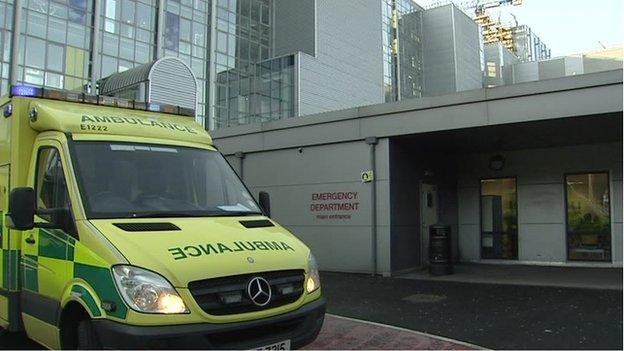
- Published11 February 2014
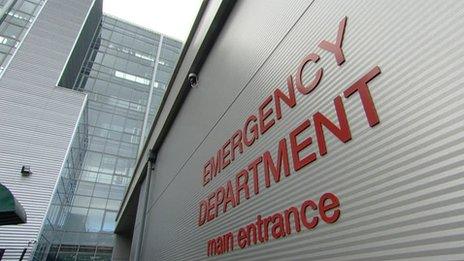
- Published14 November 2013
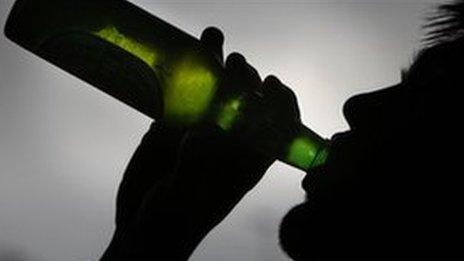
- Published19 November 2012
